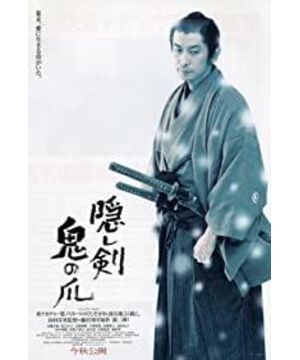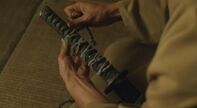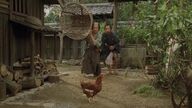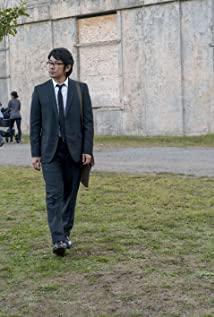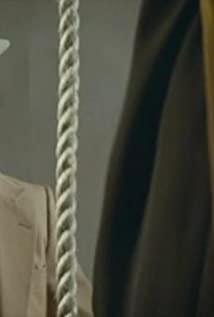Mr. Yamada Yoji unintentionally inserted a willow, and revived the Japanese period drama with "Twilight Seihei". Later, he put another novel "Hidden Sword and Ghost Claw" by Zhouhei Fujisawa on the big screen, in order to continue the craze of period drama.
These two works are like twin brothers, and they have a lot in common with each other. The stories are set on the eve of the Meiji Restoration, showing the benevolence and love, hardship and displacement of a samurai. They cannot represent the upper structure of the entire era, but they connect up and down with the special identity of warriors and become spokespersons for the people at the bottom. The author and director reproduced the helplessness and twists of small individuals in the turbulent years and the restlessness on the eve of social turmoil through the portrayal of the two "brothers".
Many commonalities make "Hidden Sword and Ghost Claws" familiar, and even the similar plots of the lines have made people suspicious of Yamada Yoji. Could it be that this is just a copy of his rape and slippery? Could this be his inertia after shooting a lot of "The Story of Toujiro"? Could it be that "Twilight Seihei" is just the illusion of the revival of the period drama and "Hidden Sword" is the truth behind it? These questions will only become clear after the film has been watched.
The protagonists of the two films are quite similar. They are both inferior warriors. They are also impoverished. They have the same skills. They love a girl. They dare not confess. They are also ordered to punish... Wei and Zongzang are closely linked and cannot be separated, but the two are not the same. Accompanied as a samurai inferior, but the Zong collectors were lavish in his early years, only because his father apologized for a Caesarean section, it went from bad to worse. Despite this, Zongzang's strong character has not diminished, at least a bit depressed and sigh that the hero is useless. On the other hand, Qing Bingwei accepts, retreats and retreats, cautiously, uncontested, even the final condemnation is cowardly and reluctant. It can be said that birth and personality are precisely the biggest differences between the two, which also leads the two to different endings respectively. Qingbingwei died three years later under the fire of the Emperor's Army (the reformist faction), while Zongzo was angry and broke with the shogunate. Although the two have a similar life trajectory, in the end they are completely opposed. Why this is so is unknown.
Compared with "Hidden Sword and Ghost Claws", "Twilight Sei Bing Guard" shows a bit of romance. Through the hardships in the world, the director faithfully recorded the life of Qing Bingwei's failure and gave deep sympathy. Only at the end of the film was the scene removed from the farewell after a brief happiness, and the happiness of an unknown samurai was transcribed by the smiling face of the youngest daughter. Zongzang broke up with Qing Bingwei from the intersection of "punishment" and set off on a cruel road with reality, with an uncertain future. "Hidden Sword and Ghost Claw" is similar to the second ending of "Twilight Seiya", and the opposite end shows that the two have reached the same goal by different paths. Maybe a few years later, they died on the same battlefield, and what they insisted on has lost meaning.
Happiness becomes extremely luxurious in the turbulent time.
View more about The Hidden Blade reviews


